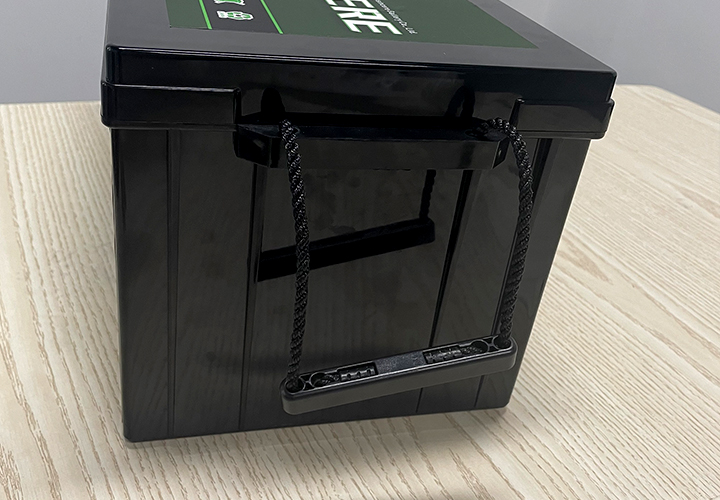source:other news
release time:2023-09-04
Hits:0
Popular:

Lithium polymer batteries have been widely developed and studied as a rechargeable, high specific energy device. These batteries are composed of lithium or carbon negative electrodes (anodes), corresponding high potential embedded positive electrodes (cathodes), a polymer electrolyte. Due to the application of polymer electrolytes, it is possible to develop a battery with higher safety and the ability to twist and deform at will. The main requirements for the performance of polymer electrolytes in lithium-ion batteries are high ion conductivity, stable electrochemical and thermal properties, flexible mechanical properties, and high mechanical strength. The main parameters that characterize the performance of electrolytes include ion conductivity, electrochemical stability window, and lithium ion migration number.
To improve the ion conductivity of polymer battery electrolytes, it can be achieved by increasing the number of charged particles in the polymer and the migration rate of charged particles. Lithium salts such as LiCIO, LiBF4, LiN (CFaSOz) 2, LiSCN, LiC, and Coa generally have high ionic conductivity in polymers with high dielectric constants due to their low dissociation energy. The use of composite carbon electrodes and AMS based colloidal polymers as electrolytes in lithium-ion batteries has shown excellent performance.
Increasing the migration rate of charged particles can also improve the ion conductivity of polymers while maintaining their dielectric constant. The more lithium salts dissociate into free ions in the electrolyte, the faster the ion migration, the higher the conductivity, the larger the dielectric constant of the solvent, the smaller the electrostatic interaction between lithium ions and anions, and the more free ions there are. But solvents with high dielectric constants also have high viscosity, which can actually slow down the migration rate of ions.
For solutes, as the concentration of lithium salts increases, the conductivity increases, but the electrolyte viscosity also increases accordingly; In addition, the larger the radius of anions in lithium salts, the smaller the lattice energy, and the easier the lithium salts are to dissociate, but the viscosity also increases accordingly. Due to the interaction of the above factors, the maximum value of conductivity in a specific electrolyte is generally between 1.1-1.2 mol • I lithium salt concentration. Therefore, a solvent with a high dielectric constant can be mixed with one or several solvents with low viscosity, and the electrolyte with higher conductivity in polymer lithium-ion batteries can be obtained by adjusting the ratio (volume ratio) of each component.
Read recommendations:
lithium trolling motor battery Vendor
Golf Cart 51.2V 105Ah LiFePo4 Battery Pack IP67 Waterproof with Bluetooth
Understanding the Advantages and Disadvantages of Sodium-Ion Batteries for Business Applications
Explore the advantages of lithium batteries for mobile phones.portable solar power generator

Last article:What conditions should lithium-ion batteries from lithium-ion battery manufacturers meet in terms of safety performance?lithium batteries for solar panels
Next article:What are the common sense introductions in the use of low-temperature batteries?
related suggestion
lithium batteries for boats
2023-03-22solar energy storage Factory
2023-03-20deep cycle marine battery Processing
2023-03-20lifepo4 solar battery Factory
2023-04-07lithium deep cycle marine battery wholesale
2023-03-20lithium deep cycle marine battery price
2023-04-07power station solar
2023-05-0812v solar battery
2023-05-08solar generator amazon
2023-05-08solar generator for home
2023-05-08deep cell marine battery
2023-05-08solar power storage
2023-05-0820kwh 30kwh 40kwh High Power Lithium Battery 307V 100Ah For Solar Energy Storage System
2023-02-143kw solar portable power station 110v 220v 3000w inverter lifepo4 battery fast charging ups convenient with wheels
2023-04-1221700 3.7V Lithium Ion Battery 4800mAh 3C
2025-06-05Low Temperature Lithium Battery 26650 Cell
2022-10-18High Discharge 5C 10C 18650 21700 Lithium Ion Battery Cell
2023-02-14How to Work Remotely While Camping: 7 Simple Steps
2022-09-05Choosing the Best 48V 400Ah Lithium Battery for Your Golf Cart
2025-03-12What is the Range of a 72V Golf Cart?
2025-03-12Choosing the Right 18650 3.7V 3000mAh Battery for Industrial Applications: Performance, Chemistry, and Compliance
2025-08-08Design of load balancing of polymer lithium -ion battery charging system.best solar generator for home
2023-03-10Electric vehicle power battery.marine battery for trolling motor
2023-08-11How to choose a car emergency starting power supply?best batteries for off grid solar
2023-05-09What should I pay attention to when using 18650 lithium batteries?solar energy storage batteries
2023-06-21Advantages of polymer lithium batteries.lifepo4 battery 12v 200ah
2023-07-10What is a profiled battery?
2022-12-29